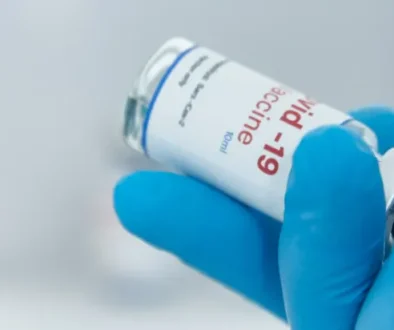Erectile Dysfunction in the Aging Male: Challenges and Solutions
Understanding Erectile Dysfunction: An Overview
Erectile Dysfunction (ED), commonly known as impotence, is a condition that affects men’s ability to achieve or maintain an erection suitable for sexual intercourse. This condition can vary in severity; some men may be able to attain an erection but are unable to sustain it, while others struggle to achieve any degree of hardness at all. ED is a common concern amongst men, with research suggesting that over half of men aged 40 and over will experience some degree of erectile dysfunction.
The prevalence of erectile dysfunction tends to increase with age. It is estimated that approximately 40% of men at the age of 40 experience some form of ED, and this number increases to nearly 70% by the age of 70. Despite its commonality, ED is a condition that is often stigmatized and underreported, leading to a lack of proper diagnosis and treatment.
The Biological Mechanisms of Erectile Dysfunction
Erectile dysfunction is often the result of a complex interaction of psychological, neurological, vascular and endocrine factors. The process of achieving an erection involves a complex series of events within the body. Initially, sexual arousal triggers a response in the brain, which sends signals to the nerves in the penis, causing the muscles in the penis to relax and allowing blood to flow in and fill the penile chambers, leading to an erection.
Any disruption in this process can result in erectile dysfunction. Vascular diseases, such as atherosclerosis and diabetes, can affect the blood flow to the penis. Neurological disorders, including Parkinson’s disease and Multiple Sclerosis, can interfere with the nerve signals necessary for an erection. Hormonal imbalances, such as low testosterone levels, can also contribute to ED.
Erectile Dysfunction as a Consequence of Aging
The increasing prevalence of erectile dysfunction with age can be attributed to various factors. Ageing often brings about changes in the body that can adversely affect a man’s sexual function. These changes include decreased levels of testosterone, increased prevalence of health conditions affecting blood flow, and age-related changes in the penis and testicles themselves.
Moreover, certain medications used to treat common age-related conditions such as hypertension and diabetes can also cause erectile dysfunction. Lastly, lifestyle factors such as smoking, alcohol consumption, and lack of physical activity, which are more prevalent in older individuals, can also contribute to the development of ED.
The Impact of Erectile Dysfunction on Men’s Health
Erectile dysfunction is not just a physical condition; it has profound impacts on a man’s mental health and wellbeing. The inability to perform sexually can lead to feelings of inadequacy, depression, anxiety, and stress. Men with ED may also experience lower self-esteem and decreased quality of life.
Furthermore, ED can have severe implications on a man’s relationships. Being unable to maintain sexual intimacy can create tension between partners, leading to breakdowns in communication and mutual understanding. In many cases, men with ED may also avoid intimate relationships altogether due to fear of embarrassment or failure to perform.
Psychological Challenges Associated with Erectile Dysfunction
Dealing with ED can bring about a multitude of psychological challenges. Men may feel embarrassed, ashamed, or emasculated due to their inability to perform sexually. These feelings can lead to withdrawal from sexual activities, avoidance of intimacy, and ultimately damage to a man’s self-esteem and mental health.
In addition, men with ED may experience feelings of anxiety and depression. The stress and worry about not being able to achieve or maintain an erection can lead to a vicious cycle, where anxiety about performance leads to further erectile dysfunction, leading to increased stress and anxiety.
Social and Relationship Challenges of Erectile Dysfunction
Erectile dysfunction can also take a toll on a man’s social and relationship wellbeing. The inability to maintain sexual intimacy can create tension between partners, leading to breakdowns in communication and mutual understanding. Men may also avoid forming new relationships out of fear of sexual inadequacy.
Furthermore, societal expectations and stigmas around male sexual performance can exacerbate the feelings of shame and embarrassment associated with ED. Men with erectile dysfunction often feel isolated and alone in their struggles, leading to further withdrawal from social activities and relationships.
Current Treatments for Erectile Dysfunction
Fortunately, there are various treatment options available for men suffering from erectile dysfunction. The choice of treatment often depends on the underlying cause of the ED, the severity of the symptoms, and the man’s overall health.
Pharmacological treatments, such as Viagra and Cialis, are often the first line of treatment for ED. These medications work by improving blood flow to the penis, thus facilitating an erection. Other treatment options include vacuum erection devices, penile implants, and vascular surgery.
The Role of Medication in Managing Erectile Dysfunction
Medication plays a crucial role in the management of erectile dysfunction. Phosphodiesterase type 5 (PDE5) inhibitors like sildenafil (Viagra), tadalafil (Cialis), and vardenafil (Levitra) are the most commonly prescribed medications for ED. These drugs work by relaxing the muscles in the penis, allowing for increased blood flow, and facilitating an erection in response to sexual stimulation.
However, while these medications are effective for many men, they may not work for everyone, and they do come with a risk of side effects. These can include headaches, flushing, indigestion, and in rare cases, vision changes.
Non-Medical Solutions and Lifestyle Changes for Erectile Dysfunction
In addition to medication, there are also numerous non-medical solutions and lifestyle changes that can help manage erectile dysfunction. Regular exercise, a balanced diet, and maintaining a healthy weight can all improve blood flow and overall health, thus helping to alleviate symptoms of ED.
Furthermore, mental health therapies such as cognitive-behavioural therapy and sex therapy can help address the psychological aspects of ED, helping men to navigate feelings of stress, anxiety, and low self-esteem. Finally, communication and honesty with partners can help to overcome the relationship challenges associated with erectile dysfunction, allowing for a more satisfying sexual experience for both parties.

